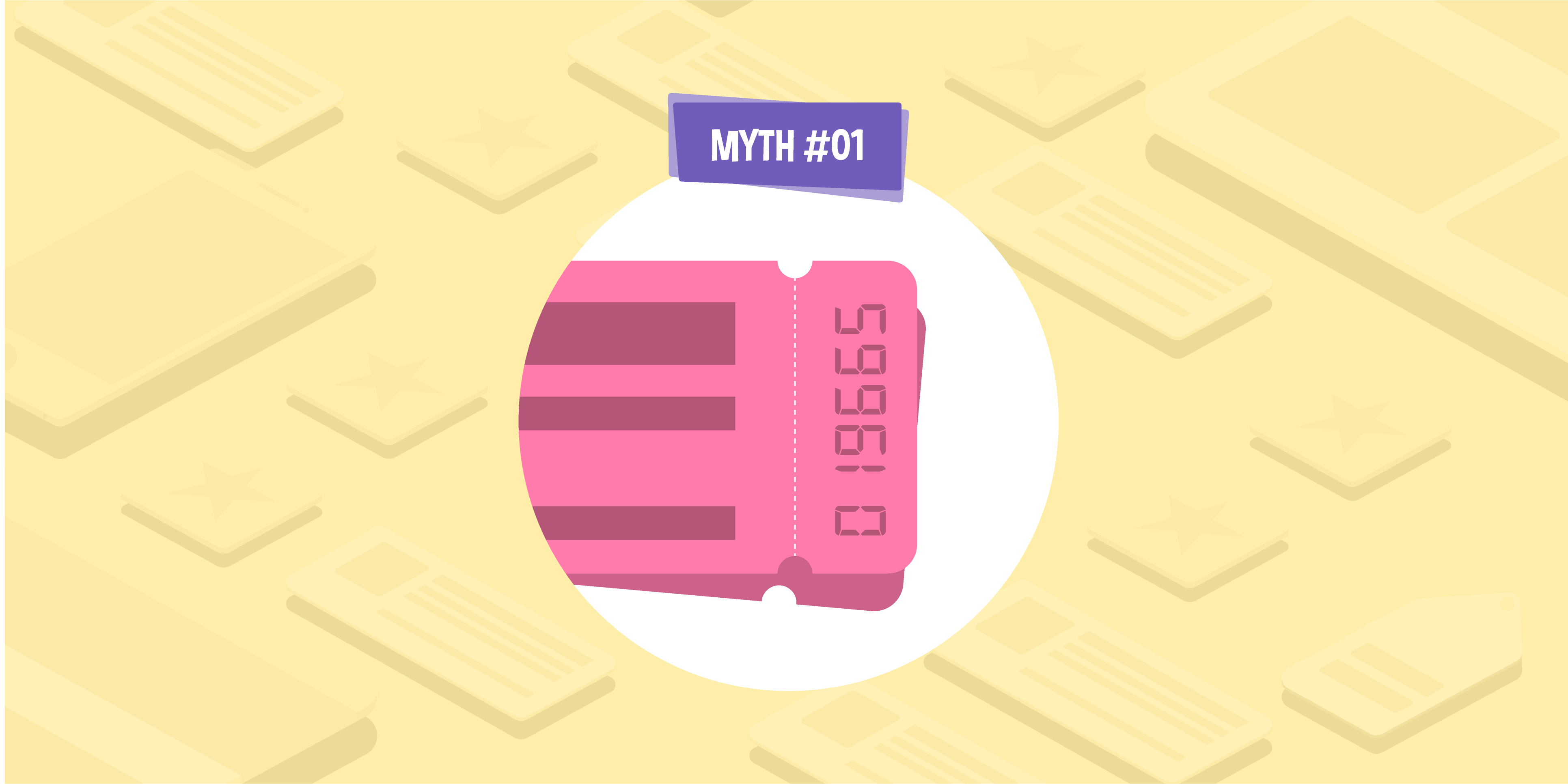
- 13 Sep 2022
Affiliate marketing vs. influencer marketing
Affiliate and influencer marketing are both extremely popular forms of advertising. In fact, influencer marketing has become one of the most prevalent digital marketing strategies worldwide. It’s hard to browse social media these days without seeing some sort of sponsored post. So, it’s no surprise that the industry is worth a whopping 16.4 billion US dollars (Statista).
Affiliate marketing isn’t far behind either. While not as popular as its cousin influencer marketing, the UK affiliate industry was worth a massive £627 million in 2020 when the COVID-19 pandemic led the online shopping boom (Statista).
Both forms of marketing are effective ways to drive brand awareness, traffic, and sales, but it seems that many people are missing out on the strengths of affiliate, and therefore major growth. This may be due to a misunderstanding of affiliate marketing, or maybe people don’t realise that you don’t have to choose between them. The fact is you can invest in both affiliate and influencer marketing to reach your business goals.
Here, we’ll discuss the differences between affiliate and influencer marketing and how these differences can be used to your advantage.
What is affiliate marketing?
Affiliate marketing is a type of advertising. You’ll usually work with an affiliate partner (such as a voucher site or a blog) to post an affiliate link back to your site. You’ll then pay the partner for successfully delivering an action, such as traffic, a lead, or a conversion.
Affiliate is a solid performance-based type of marketing that works for both prominent brands and smaller businesses that have a variety of products, good margins, and a decent amount of traffic (at least 20K unique monthly visitors). You can find out more about affiliate marketing and whether it’s the right fit for you in our guide to affiliate marketing for merchants.
What is influencer marketing?
Influencer marketing is similar to affiliate marketing in that you pay a third party for driving traffic to your site. However, this type of marketing mainly occurs on social media and involves setting up personalised links or discount codes and paying a person or organisation (known as an influencer) to promote your product or service. In some cases, you may pay the influencer through free gifting, rather than a traditional payment. Influencer marketing is also a form of advertising, so all sponsored content needs to be disclosed to the consumer as per ASA rules.
The differences
Influencer and affiliate marketing are both valuable ways to build your brand, but their methods, payment, goals, and timescale can be different.
Budget and payment
Affiliates: Many affiliates operate on a cost-per-action (CPA) basis, which means the partner will only be paid once an action is delivered. This is a much lower risk compared to traditional payment methods which involve an initial fee, whether or not the content resulted in conversions. Another benefit of the CPA model is that you can decide which action you choose to reward the partner for, such as a click or a sale.
Influencers: While affiliates can operate on a CPA basis, it is very unlikely an influencer will solely work on commissions without a budget. Naturally, influencer content takes a lot of time and effort to produce, so it’s likely that content creators may ask to be rewarded for their effort to deliver aspirational content. In some cases (but not all), brands will offer the creator an initial fee, plus a commission for every action delivered as a result of their post. The benefit of this is that the influencer will be more driven to create engaging content to get those clicks.
Goals and focus
Affiliates: The main goal of affiliate marketing is to deliver revenue growth and ROI. Your affiliate efforts will usually focus on the end goal of a sale, and you can use affiliate tools to monitor traffic and conversions to measure your KPIs.
Influencers: Influencer campaigns can deliver on ROI, but they’re mostly focused on softer KPIs. A business should be prepared to invest in brand awareness, which might not convert to ROI right away. It will instead assist other channels and marketing efforts, such as affiliates and PPC. Influencer marketing can also build more trust and credibility for your brand, particularly if you choose the right influencers for your niche.
Client objectives and long-term planning
Affiliates: Affiliate marketing can have a quick turnaround, especially if flash sale and bank holiday deals are designed to shift stock. You can quickly create an affiliate campaign to promote any deals and these posts will expire at the end of the event. This makes affiliate marketing a much more flexible option.
Influencers: Influencer marketing requires a longer-term objective and a clear plan of action. If you wish to build a brand ambassador for your business or a client, it will be a long-term task. However, it can help you achieve your overall goals, so it’s worth combining your influencer marketing with your affiliate strategy for both short- and long-term wins.
Niche and engagement
Affiliates: Affiliate deals have a level of personalisation and are generally designed to target a wide range of demographics, such as people interested in fashion or homeware, or those more generally interested in brand deals. You’ll be able to choose sites with a similar audience base and you can usually tailor your content and your partnerships to ensure that all your affiliate efforts are on-brand and targeted to your niche.
Influencers: Influencer outreach should be designed around the influencer’s engagement and credibility. Make sure you find a selection of content creators who are representative of your brand and come across as a genuine fit rather than a solely paid partnership. This can take a little more research compared to affiliate partnerships, and you’ll want to pay attention to the size of an influencer as well as their audience. For SMEs, micro-influencers tend to be a better fit (and more affordable) than larger accounts.
The combined approach
As they tend to take different approaches, affiliate marketing and influencer marketing can usually complement each other. Influencer marketing can help build your brand awareness, which in turn will boost your affiliate marketing efforts. Meanwhile, affiliate marketing can help drive your revenue so you can put more money and time into your influencer marketing. Here at Glass, we’ve found that we’re working with influencers more often as part of our affiliate campaigns.
What’s even better is that many tools set up for influencer marketing have proven invaluable for affiliate marketers too. For example, in June 2021, Instagram announced the launch of a native tool for affiliates. The new tool allowed content creators to monetise their content on the platform without any extra technical work. This opened up a wide range of opportunities for brands to collaborate with influencers on an affiliate basis. And, although Instagram’s native tools are no more, they are a great example of how affiliates can utilise existing tools to monetise their content and extend a campaign’s reach.
Since affiliate and influencer tools overlap in this way, it can be fairly straightforward and cost-effective to manage both strategies at the same time. While we have seen more and more automated solutions being promoted by prominent affiliate networks over the past couple of years, as well as a growing desire for influencer marketing to top up the efforts of affiliates, these automated tools aren’t quite as effective as a human approach.
Automated content monetization solutions can help save time, but there are still some limitations. For one thing, these tools do not have the complexity to factor in stock levels or brand guidelines, or to judge whether an influencer is a suitable brand ambassador. So, we believe a component of human touch is always required, not only to ensure the products promoted are actually in stock but to also guarantee that the influencer truly captures the brand’s message.
If you’re looking for someone to manage your affiliate and influencer campaigns for you, or you’d like to find out which option is right for your brand, our expert Affiliate team can help. We’ll work with you to create a bespoke marketing strategy based on your goals and demographics. Just get in touch with the team today to book your free, no-obligation chat.

